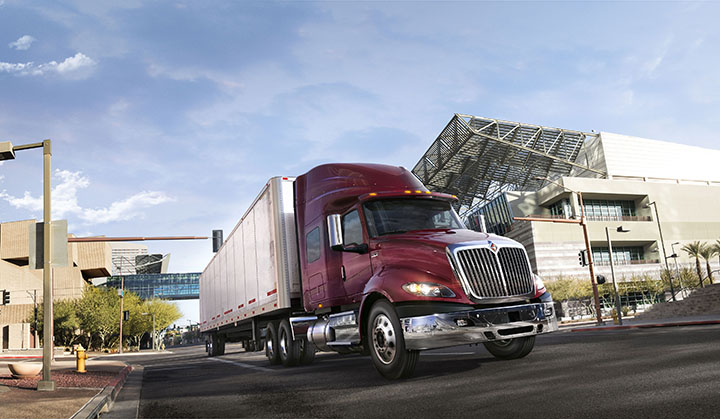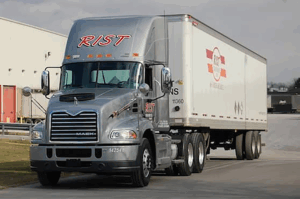INDIANAPOLIS and LISLE, Ill. — Cummins Inc. and Navistar International Corp. will collaborate on the development of a Class 8 truck powered by hydrogen fuel cells, the companies announced Nov. 11. The truck will then be added to Werner Enterprises’ fleet in Fontana, California.
The project will be funded in part through an award from the U.S. Department of Energy’s (DOE) Office of Energy Efficiency and Renewable Energy (EERE). The award was previously announced in August as part of DOE’s H2@Scale initiative to develop affordable hydrogen production, storage, distribution and use.
“This vehicle will feature our next-generation fuel-cell configuration and provides a springboard for us to advance our hydrogen technology for line-haul trucks,” said Amy Davis, who serves as Cummins’ vice president and president of the New Power segment. “We are also excited to build on our strong relationship with Navistar, which dates back 80 years, and work together to lower costs and make hydrogen-powered vehicles more accessible for fleets to adopt.”
According to a statement from Cummins, the DOE grant will aid in the development of an integrated fuel-cell-electric powertrain for heavy-duty trucks with operational performance and total cost of ownership that supports near-term, rapid and substantial penetration of the truck markets. This includes development of a solution that is highly manufacturable and scalable with a proven range of 300 miles or more and improved fuel economy over current heavy-duty trucks.
The powertrain, which will be integrated into an International RH Series, will use two HyPM HD90 power modules, made up of HD45 fuel cell stacks connected in series. Instead of having a single large fuel cell operate at an inefficient partial load, individual HD45 power modules can be turned on and off to provide adequate power at an efficient full load.
“Cummins is a trusted Navistar partner, and collaborating with the company on this project is a milestone in learning integrations surrounding the functionality, adoption and scalability of hydrogen fuel cells as a power source for Class 8 vehicles,” said Darren Gosbee, Navistar’s vice president of engineering. “Hydrogen offers great opportunity in the commercial vehicle sector, and we’re proud to be part of the team working to develop a complete solution for customers.”
The prototype fuel-cell Class 8 truck will ultimately see a year-long field test before being integrated into Werner Enterprises’ fleet of more than 7,700 tractors, where the truck will be operated in real-world local and/or regional delivery operations.
“This integration aligns with our environmental, social and governance initiatives as we continually look for new ways to reduce our carbon footprint,” said Scott Reed, senior vice president of fleet purchasing and maintenance for Werner Enterprises.
“Testing the vehicle in real-world conditions will help paint a full picture of how the system performs over challenging road conditions, including both hot and cold climates,” Reed continued. “In addition to that performance data, we are excited about the opportunity to provide feedback from Werner professional drivers, mechanics and fleet management to help the project team develop a comprehensive total cost of ownership analysis.”
Objectives of the DOE award include achieving, meeting or exceeding conventional diesel powertrain performance requirements and reducing the upfront capital costs by 35% to make the adoption of zero-emission fuel-cell technologies viable for commercial fleets.
The Trucker News Staff produces engaging content for not only TheTrucker.com, but also The Trucker Newspaper, which has been serving the trucking industry for more than 30 years. With a focus on drivers, the Trucker News Staff aims to provide relevant, objective content pertaining to the trucking segment of the transportation industry. The Trucker News Staff is based in Little Rock, Arkansas.









Innovation is inevitable, it’s fascinating to think about where we’ll be in the next 20 years specifically within the trucking industry.